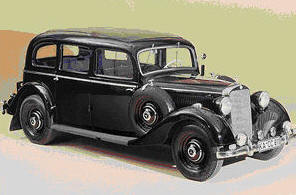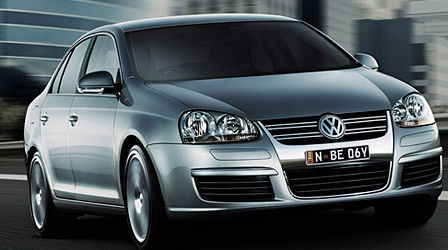|
Radschool Association Magazine - Vol 20 Page 12 |
|
|
The Diesel Engine.
It's a bit surprising that the diesel engine was ever viewed as dirty when you consider the inventor, Rudolph Diesel, set out to create a more efficient engine that ran on a natural by-product. Diesel, a German engineer, was traveling in Northern Africa in the late 1800s when he saw people starting fires in a way he'd never seen before. The people placed a small bit of wood in the bottom of a tube, then rammed a plunger into it.
The ramming action increased the temperature and
pressure, which caused the wood to smolder, then burn. Diesel used this
technique to build a more efficient engine than the steam and petrol
versions that were available at the time. The 1936 Mercedes-Benz 260D was the world's first diesel passenger car.
The idea of powering a diesel engine with an environmentally friendly fuel has returned, however. Today, biodiesel, which is derived from vegetable oil, is used quite widely in Europe and is gaining popularity in the United States.
After Diesel unveiled his creation at the 1900 World's Fair in Paris, the engine was first put into use by the military, then in the commercial sector, and finally in the consumer market. In 1936, Mercedes-Benz debuted the world's first diesel passenger car, the 260D. Today diesel-powered vehicles represent about one-third of the vehicles sold in Europe, where the vehicles and the fuel are widely available. |
Diesels are becoming increasingly popular
passenger vehicles because of improved fuel economy and increased
performance. The Volkswagen Jetta, the company's best-selling diesel
model (world wide), is significantly better than the petrol powered model: it's rated
at
Of all the types of internal-combustion engines, the diesel engine is the most efficient; a given amount of diesel fuel can make more power than the same amount of petrol. In order to tap into that greater potential energy, air is compressed to a much greater degree than it is in a petrol engine. Most petrol engines have a compression ratio of around 10 to 1 while a diesel's can be as high as 25 to 1.
After compressing the air, small amounts of fuel are injected into the combustion chamber. This highly compressed mixture creates high temperatures, which in turn causes the diesel fuel to burn without a spark plug (a key component in a petrol engine). The resulting energy is what gives diesel its edge in fuel economy--20 to 40 percent more than a comparably sized petrol engine.
Diesel engines are also substantially less
harmful to the environment today than they were in the past and are headed
down the road to becoming even cleaner in the near future. When it comes
to carbon dioxide, diesels are actually more environmentally friendly than
petrol, but pollutants such as nitrogen oxide and soot are a different
story altogether. |
|
Man says to God: "God, why did you make woman so beautiful?" God says: "So you would love her." The man says, "But, God, why did you make her so dumb?" God says: "So she would love you." |
In the 60's people took acid to make the world weird. Now the world is weird and people take Prozac to make it normal. |

 6.53
litres/100klms city cycle and 5 litres/100klms highway mode, compared to
just 9.8l/100klm city and 6.5l/100klm highway with the petrol engine.
Further, while the diesel version has less horsepower, it has oodles more
torque: 177 ft/lb at 1,800rpm vs. 122 ft/lb at 2,600rpm in the comparable 2.0-liter
petrol engine.
6.53
litres/100klms city cycle and 5 litres/100klms highway mode, compared to
just 9.8l/100klm city and 6.5l/100klm highway with the petrol engine.
Further, while the diesel version has less horsepower, it has oodles more
torque: 177 ft/lb at 1,800rpm vs. 122 ft/lb at 2,600rpm in the comparable 2.0-liter
petrol engine.